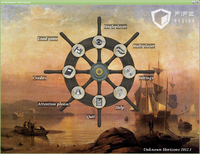Beyond the Horizon
Colonizing new territory, processing raw materials, and trading goods are ingredients for popular strategy games. This genre is served on Linux by the free Unknown Horizons project.

Colonizing new territory, processing raw materials, and trading goods are ingredients for popular strategy games. This genre is served on Linux by the free Unknown Horizons project.
The principles behind the Unknown Horizons game [1] are reminiscent of Ubisoft's popular free "Anno" strategy game series [2], and that's no coincidence, because Unknown Horizons is a clone of this popular series. The Anno games have been extremely popular for many years, but because the manufacturer has studiously ignored Linux, a few fans summarily started work on a clone in 2005. Now, thanks to dedicated developers, it is growing into a worthy competitor.
In the first versions of the clone, called "OpenAnno," during the game the player viewed a landscape from above and at an angle, as in the original isometric representation. Just two years later, however, the project ground to a halt. Then, in the spring of 2007, new developers took over the helm and made some drastic decisions. They tried to develop a variant with 3D graphics, in addition to the 2D version, but the developers soon realized they had underestimated the amount of time and effort involved. To simplify development as far as possible, they ditched the existing code from the 2D version and moved to the Flexible Isometric Free Engine, or FIFE for short [3]. FIFE facilitates the process of programming games with isometric graphics. However, shortly after this decision, lack of time again brought the project to a standstill.
Fortunately, not much time passed before a couple of new enthusiasts adopted the project, and they have managed to sustain development to the present day. The clone project is headed by two project managers with separate responsibilities and it has adopted English as its main language. What was originally a purely German-language project has gained supporters from all over the world. Previously, one non-German speaker from India had helped translate the documentation and discussions with the aid of Google Translate.
[...]